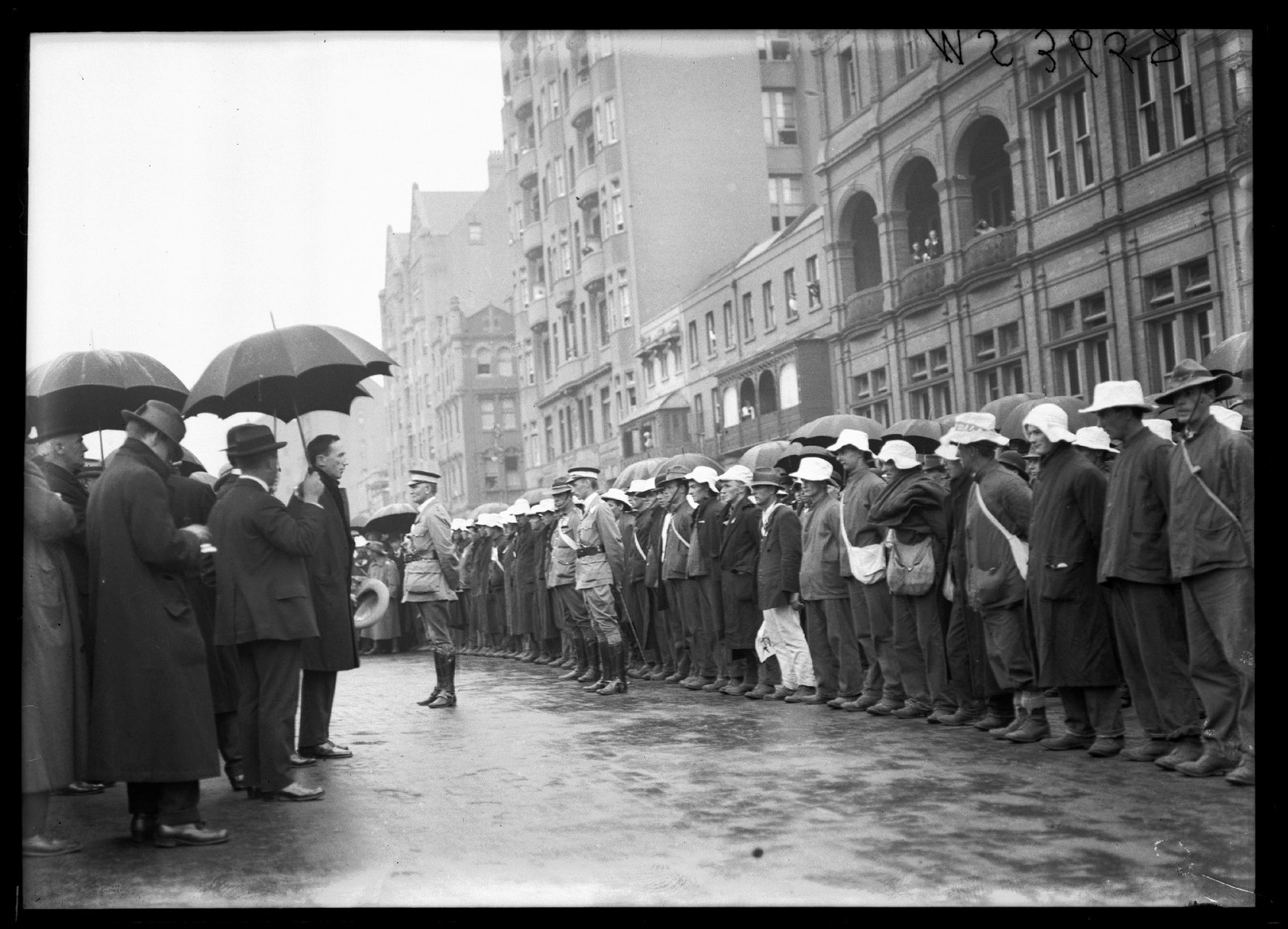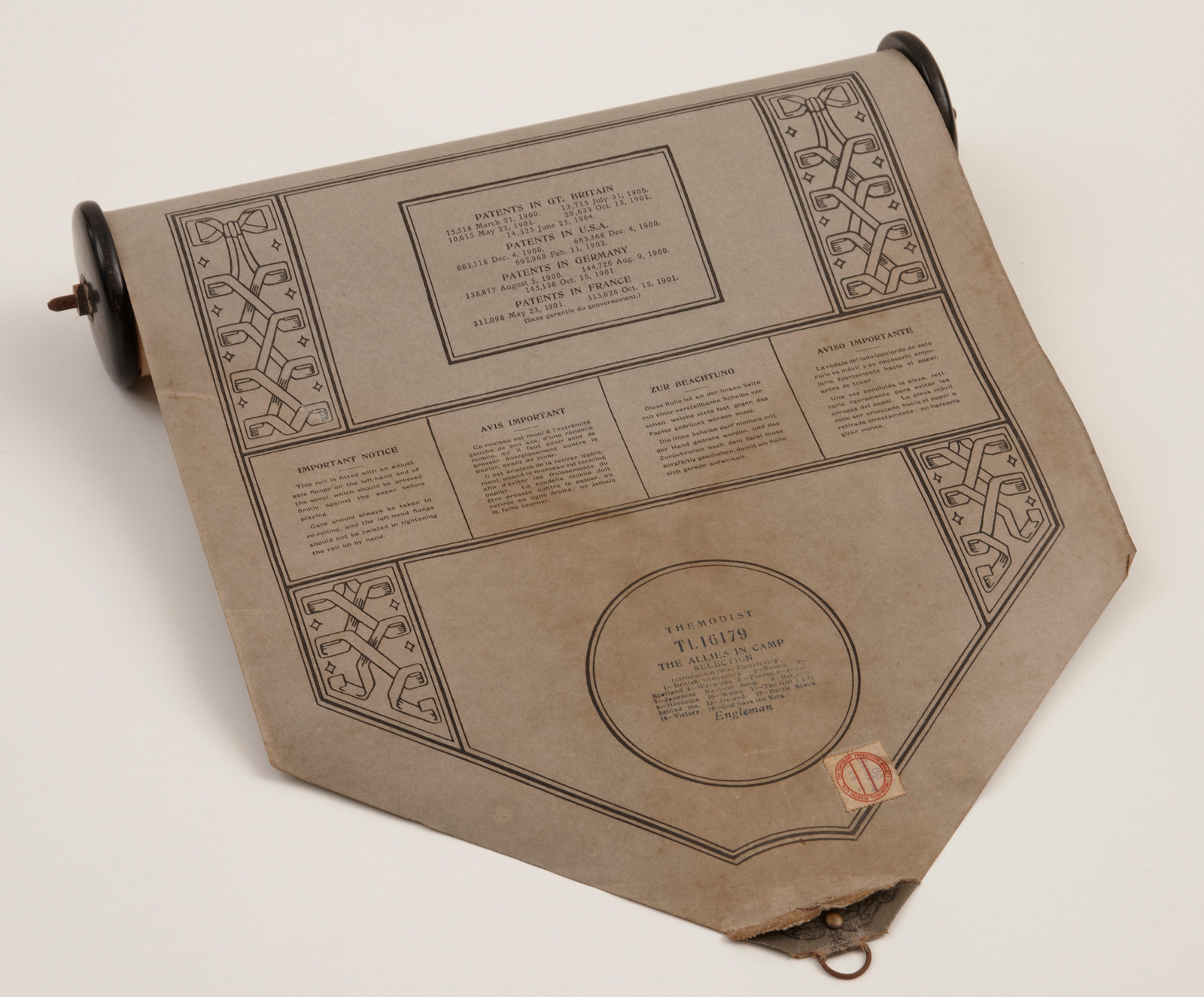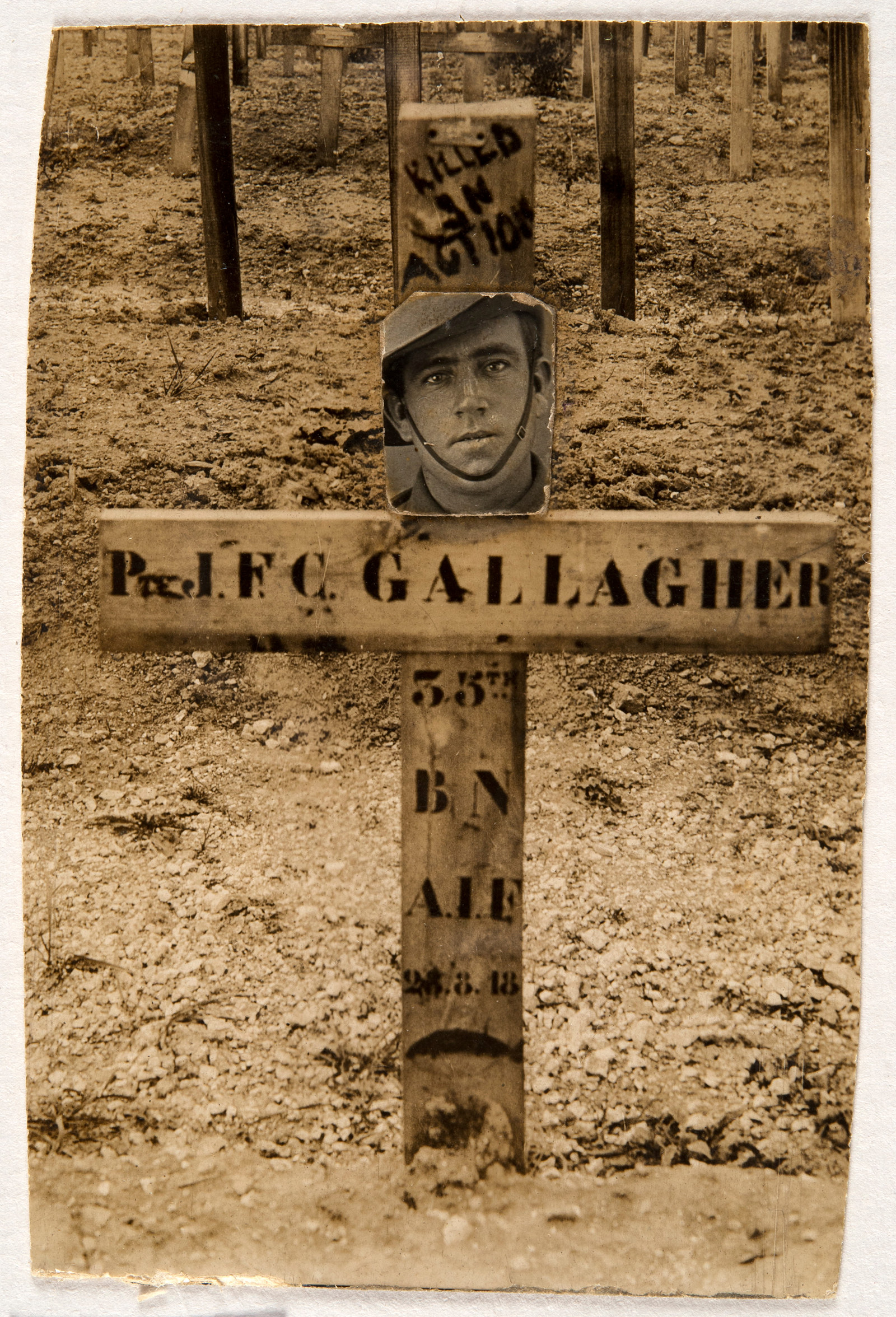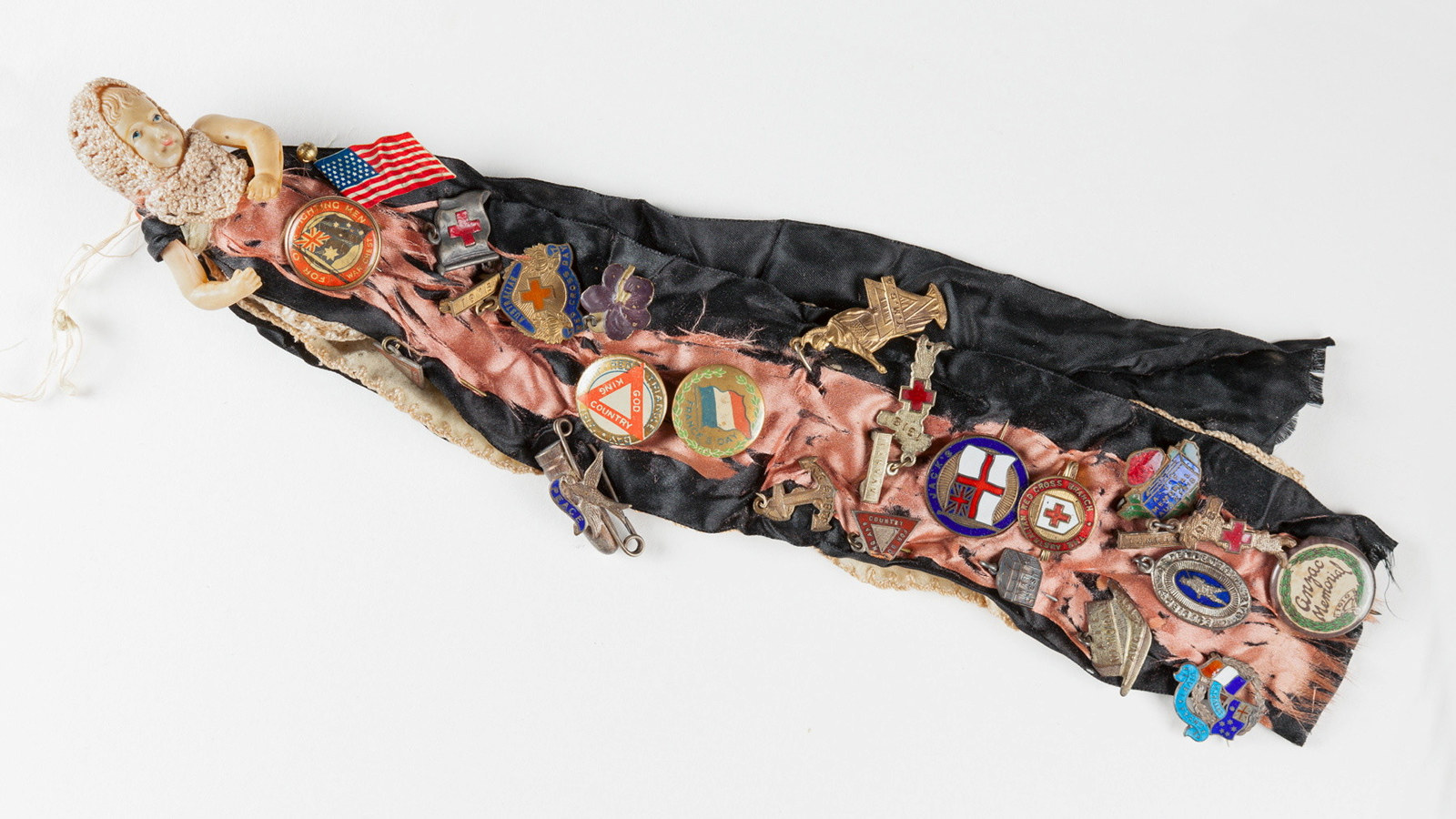Our Boys: patriotic sheet music
The copyright for the words and music of ‘Our boys (boys in khaki from the Southern Cross, gallant lads in navy blue)’ was registered in 1916 by J Albert & Son, leading Australian music retailers and publishers, based in Sydney.
The song, written by a young Sydney woman named Evelyn Greig, was one of more than 500 patriotic songs published in Australia during World War I: recruiting songs, marching songs, nationalist songs, homecoming songs, memorial songs.
The song was introduced to Australian audiences in Melbourne in late December 1916 as a musical sketch in a Christmas pantomime titled The house that Jack built produced by J C Williamson Ltd, Australia’s premiere theatrical production company. After its Melbourne season, the production toured Adelaide and Sydney, followed by a tour to New Zealand, before closing in Brisbane in August 1917. In New Zealand the production was billed as the ‘most gorgeous, magnificent and costly extravaganza’ that had ever been presented in the southern hemisphere. The company had agencies in London and New York and spared no trouble in engaging the best performers for the leading roles in their annual pantomimes, including the ‘principal boy’ and the ‘principal girl’. In the tradition of English pantomime, the role of principal boy was expected to be played with swagger and heroic dash, and by a woman. In The house that Jack built, Miss Hilda Guiver, one of London’s leading principal boys, took the part, playing to enthusiastic reviews. For her rendition of ‘Our boys’ she dressed as a handsome naval officer on the deck of HMAS Australia, against a backdrop of an Egyptian sphinx, while searchlights played across the audience. Her final song was another patriotic tune, ‘Our own dear flag’, staged with a tableau of Allied flags.
Evelyn Greig also wrote another of the songs that featured in The house that Jack built, a song titled ‘I’ve got you on a string’, described as a ‘dainty and novel wool-winding song’. The lyrics allude to the contribution made to the war effort by thousands of women who knitted socks for the troops, and the song itself relates to a genre of patriotic knitting songs written during the war. ‘Madame Evelyn Greig’ continued to write lyrics and compose music into the 1920s and 1930s and also performed as a concert pianist, but by the late 1920s she was better known as a broadcaster, arranging musical recitals for radio.
See the sheet music for Our boys (Boys in khaki from the Southern Cross, gallant lads in navy blue) / words by Evelyn Greig ; music by Evelyn Greig & C.F. Manson on the Internet Archive.
Published on
More

On This Day
17 Dec 1915 - 'Waratah' recruitment march
On 17 December 1915 the "Waratah" recruitment march arrived in Sydney

WW1
The Allies in camp music roll
Rouse Hill house boasts a fine pianola, a player piano, which came into the house just a few years before the outbreak of World War I

WW1
Frank Gallagher’s grave markers
Late in the afternoon on 23 August 1918, Private John Francis Cecil Gallagher, known as Frank, was killed by shellfire at 23 years of age

WW1
A patriotic fundraising memento
This tiny celluloid doll, just 10 centimetres in height and clothed in panels of ribbon, is showing her age
